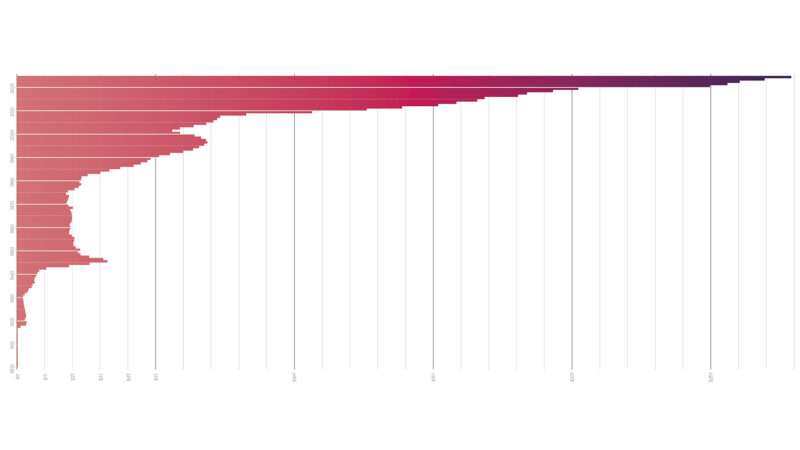
There's a weird little bus stop at the corner of 18th and K streets in Washington, D.C. On the inside, a ticker tallies the national debt in real time, the glowing numbers whizzing by too quickly for the naked eye. On the outside, there's a printed poster with a round number for the total debt: $34 trillion at press time.
I've lived in D.C. long enough to remember when changing that poster was a special occasion. But lately I've been checking regularly on my commute, since the trillions are racking up more quickly than they used to. The ink is barely dry on the current poster, yet the folks at the Peter G. Peterson Foundation, the fiscal responsibility nonprofit that maintains the display at the bus stop, will be due to roll out $35 trillion quite soon.
The bus stop is a semidesperate attempt to convince Washingtonians to care about—or at least give a passing thought to—the national debt as we go about our business. The debt has become an alarm bell ringing in the distance that people are pretending not to hear, especially in the city that caused the problem.
As Brian Riedl explains in this month's cover story, the only way out will be if politicians—and voters—stop lying to themselves about the possibility of a quick fix. We can no longer "tweak our way out of this," he writes, as we might have in the 1980s or '90s. No one party's pet proposals can solve the crisis. Yet the bipartisan trend is headed in exactly the wrong direction. Politicians of both parties have tacitly agreed to rule out all of the viable solutions.
Maya MacGuineas, president of the Committee for a Responsible Federal Budget, commented on a recent Congressional Budget Office report: "There is no way to look at these eye-popping numbers without realizing we need to make a change. And yet we have lawmakers promising what they won't do: I won't raise taxes, I won't fix Social Security, I won't pay for all the things I do want to do. And so we continue on this dangerous path."
***
There are different ways to tally the debt: The Peter G. Peterson clock uses debt held by the public plus debt held by federal trust funds and other government accounts, but Reason's charts don't include the trust funds since that money isn't really borrowed from anyone. The raw dollar figures for the gross federal debt is the most shocking—and I certainly don't begrudge the bus stop some shock value—but economists tend to agree that the debt as a percentage of gross domestic product is the more meaningful representation. So we've offered readers both in this special edition of Reason. Feel free to unfurl this issue of the magazine whichever way you prefer at your own bus stop, subway station, or coffee shop to do a little awareness raising of your own.
President Joe Biden's administration recently unveiled a budget plan that proposes borrowing an additional $16 trillion over the next decade. Its backers claim this approach is fiscally responsible, but the plan involves spending $86.6 trillion while collecting only $70 trillion in revenues, leading to annual deficits averaging nearly $2 trillion. The administration touts a $3 trillion reduction in projected deficits, but the plan slows the debt increase rather than reducing it. Those figures also assume there are no additional major crises, natural or man-made.
The solution to the national debt lies in reevaluating and cutting back on unnecessary and wasteful programs, reforming entitlement programs such as Social Security and Medicare, and implementing a more efficient tax system that encourages economic growth.
But none of this can even begin to happen until politicians perceive a demand for it from the American people. Rising debt reduces investment and can slow economic growth, while increasing worries about inflation and the strength of the U.S. dollar. It reduces confidence in the social safety net and increases the risk of a fiscal crisis. Perhaps when these problems manifest, the voters will demand that politicians take the issue seriously. But by then, it may well be too late for the economic stability and growth we have taken for granted.
In the bus stop on K Street these days, there's usually a bundle of dirty bags and rucksacks below the debt clock. In bad weather, someone is often stretched out trying to sleep under the shelter. Perhaps Washingtonians walking by can heed that more human warning about the self-inflicted costs of economic crisis, even if we have become numb to the numbers.
The post Numb to the Numbers appeared first on Reason.com.







